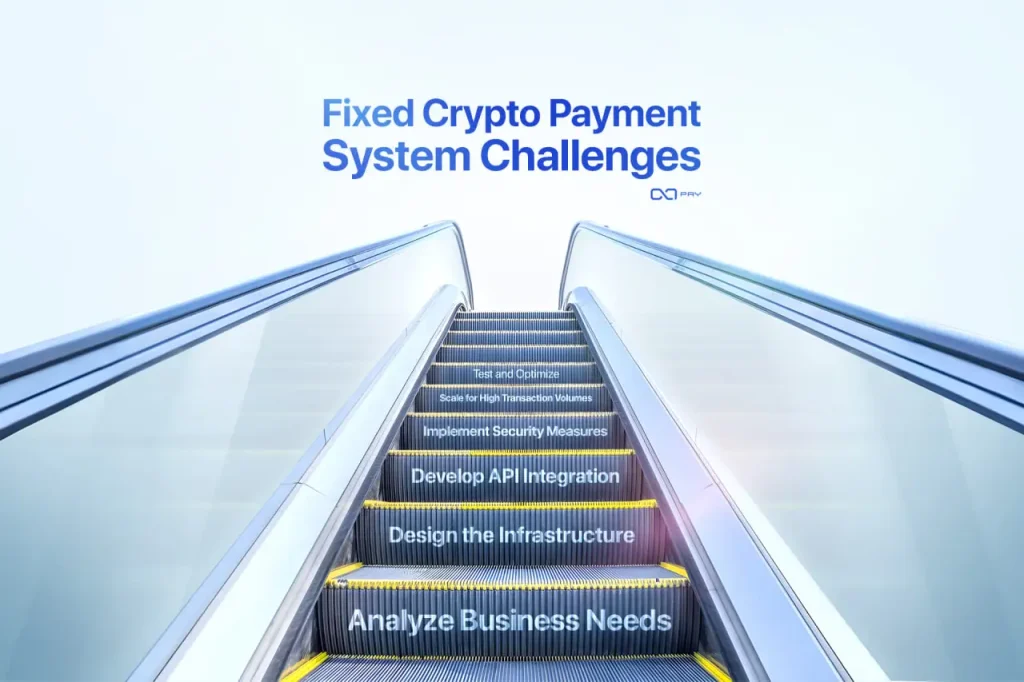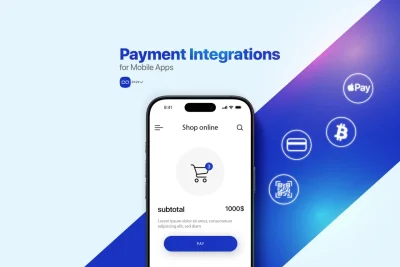How can businesses handle recurring or high-volume crypto transactions without the complexity of traditional dynamic address systems? What solutions ensure seamless management, security, and efficiency for such operations? A Fixed Crypto Payment System provides the answer, offering consistency and reliability. This article explores why Fixed Crypto Payment Systems are essential, the challenges of building one, and how OxaPay’s Static Address Service simplifies the process for businesses.
What Is a Crypto Payment System?
A crypto payment system is a framework that facilitates the integration of cryptocurrency payments into online platforms. It acts as the backbone for processing, validating, and managing transactions on blockchain networks, enabling businesses to handle payments efficiently and securely.
Dynamic vs. Fixed Crypto Payment Systems
Traditional crypto payment systems use dynamic addresses, where a new address is generated for each transaction. While this method ensures uniqueness and enhances security, it complicates tracking and reconciliation, particularly for businesses managing recurring or high-volume payments.
In contrast, fixed crypto payment systems assign a permanent address to each user for a specific cryptocurrency. This approach simplifies transaction management, as all payments from a user are directed to the same address, making it easier to track, reconcile, and automate processes. For businesses requiring streamlined operations and reliability, fixed systems offer a clear advantage.
Why Fixed Crypto Payment Systems Are Essential
For certain businesses, particularly those handling recurring payments, subscription models, or high transaction volumes, traditional crypto payment systems with dynamic addresses often fall short. Fixed crypto payment systems address critical pain points and provide transformative benefits, making them indispensable for such use cases.
Challenges with Dynamic Crypto Payment Systems
Dynamic crypto payment systems generate a new address for each transaction, which can lead to significant operational challenges. For instance, an e-commerce business processing thousands of transactions daily must track and reconcile payments across multiple dynamic addresses. This introduces inefficiencies in payment tracking, delays reconciliation, and increases the risk of errors. Additionally, customers must update payment information frequently, which can lead to confusion, failed payments, and frustration.
Benefits of Fixed Crypto Payment Systems
Fixed crypto payment systems resolve these issues by assigning a permanent address to each user. For example, a SaaS company offering monthly subscription plans can use fixed addresses to automate payment reconciliation. Each payment is linked to a static address, ensuring seamless tracking and reducing the need for manual intervention. This not only streamlines operations but also enhances the customer experience by offering a consistent and reliable payment process.
Transformative Impact on Businesses
For businesses managing high transaction volumes or recurring payments, fixed crypto payment systems simplify operations and scale effectively. An online marketplace, for instance, can efficiently handle thousands of payments without the burden of reconciling dynamic addresses. Moreover, fixed addresses build trust with customers by ensuring payments are reliably tracked, fostering long-term loyalty and satisfaction.
By addressing the inefficiencies of dynamic systems, fixed crypto payment systems become a strategic necessity for businesses aiming to scale, automate, and enhance operational efficiency.

Challenges in Building a Fixed Crypto Payment System
Creating a fixed crypto payment system is a complex and resource-intensive process, requiring advanced technical expertise and robust infrastructure. Below are the key steps and challenges involved:
Analyze Business Needs
Identify the cryptocurrencies to support, considering their unique blockchain protocols. Evaluate transaction volumes to define scalability needs and analyze integration requirements with platforms like e-commerce or accounting systems.
Design the Infrastructure
Develop a system for assigning unique static addresses securely mapped to user profiles. Customize or build wallets capable of managing these addresses while synchronizing with blockchain nodes in real-time. Robust synchronization protocols are essential to handle network congestion and ensure transaction accuracy.
Develop API Integration
Design APIs for address management, payment verification, and real-time notifications. These APIs must be scalable, secure, and compatible with various programming environments while providing event-driven updates for payment statuses and errors.
Implement Security Measures
Encrypt all data, including static addresses and transactions, both in transit and at rest. Deploy secure key management protocols and multi-factor authentication to prevent unauthorized access. Regular audits are critical to mitigate blockchain-specific risks like double-spending.
Scale for High Transaction Volumes
Use load balancers and horizontally scalable servers to handle peak transaction loads. Automate processes like address assignment and reconciliation to minimize manual intervention and improve efficiency.
Test and Optimize
Conduct stress testing to simulate high transaction volumes and edge cases like duplicate payments. Monitor system performance in real-time to identify and address bottlenecks proactively.
Building such a system requires significant technical expertise and operational foresight, making it a daunting task for most businesses without specialized resources.
Simplifying the Process with OxaPay’s Static Address Service
Building a fixed crypto payment system offers undeniable benefits, but the complexity and resources required can be overwhelming. OxaPay’s Static Address Service provides a comprehensive solution that eliminates the need for businesses to build such a system from scratch. It directly addresses the challenges previously outlined and simplifies the entire process with minimal effort.

How OxaPay Resolves the Challenges
- Address Allocation Simplified: OxaPay automatically assigns permanent static addresses to users, bypassing the need for custom algorithms or unique address mapping systems. This removes the challenge of ensuring address uniqueness and security.
- Instant Blockchain Synchronization: OxaPay handles real-time synchronization with blockchain networks, ensuring transactions are validated and processed without businesses having to build their own synchronization protocols or maintain blockchain nodes.
- Ready-to-Use APIs: The service offers pre-built, scalable APIs for address management, payment verification, and real-time notifications. These APIs eliminate the need for businesses to design and develop their own integration frameworks, significantly reducing development time.
Example Use Case: A Global Streaming Service
Imagine a global streaming platform like “StreamPro” with millions of subscribers worldwide. Without OxaPay, managing recurring crypto payments would require months of development to build a complex system for assigning addresses, tracking payments, and handling reconciliations.
With OxaPay’s Static Address Service, each user gets a permanent address upon registration, simplifying payment tracking and automation. OxaPay’s APIs integrate seamlessly in no time, saving StreamPro significant time and costs while delivering a reliable, frictionless payment experience to subscribers.
How OxaPay Resolves DIY Challenges
OxaPay simplifies the process by eliminating the need for custom development and complex infrastructure.
- It reduces costs with a ready-to-use solution, saving businesses from investing in in-house systems.
- Its seamless APIs allow integration within days, streamlining address management and payment processing.
- Advanced security measures ensure transactions are protected without requiring additional resources.
- The platform’s scalability supports high transaction volumes, letting businesses grow without operational hurdles.
Conclusion
A fixed crypto payment system is crucial for businesses handling recurring or high-volume transactions. OxaPay’s Merchant Service eliminates the complexities of building such a system, providing a seamless, secure, and scalable solution. By adopting OxaPay crypto gateway, businesses can streamline operations, enhance customer satisfaction, and lead confidently in the evolving crypto economy.




